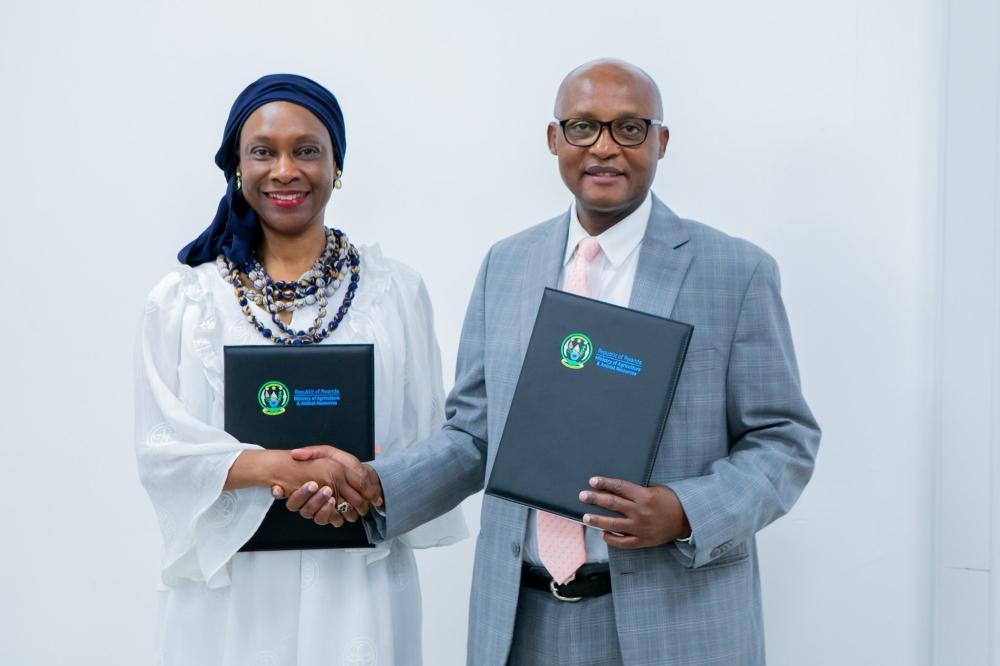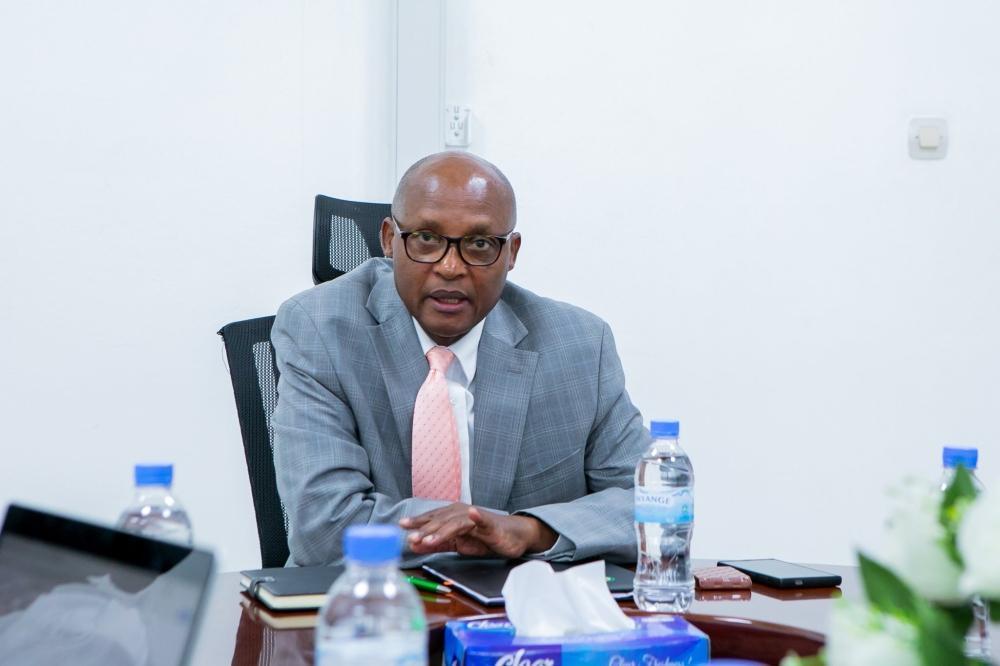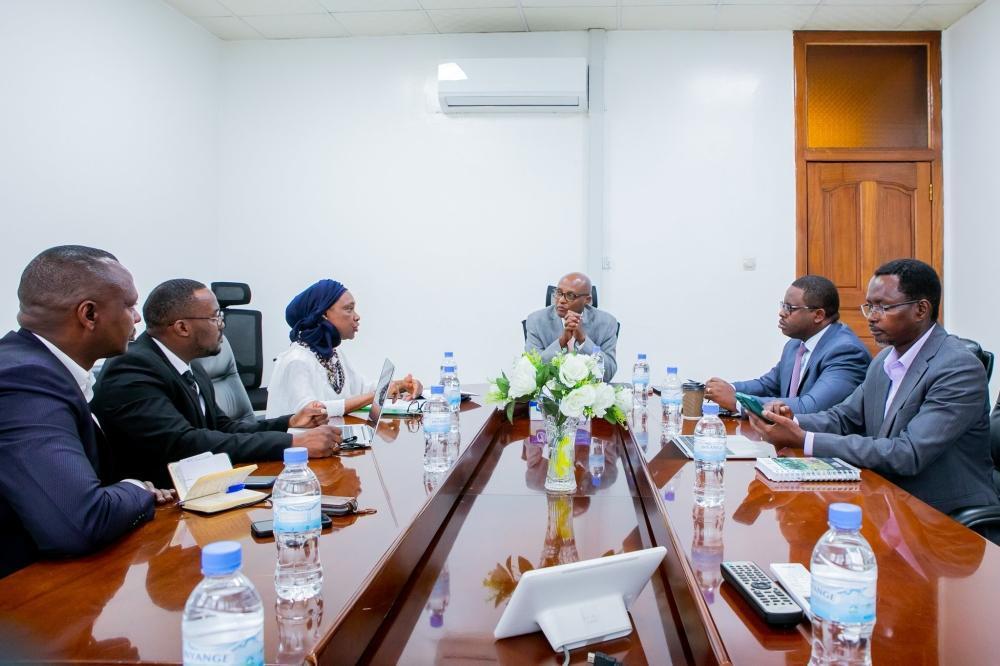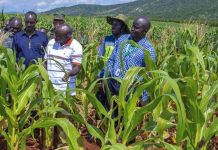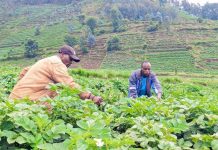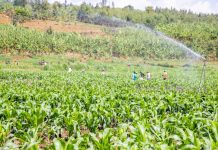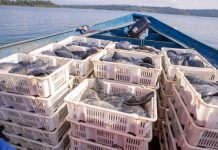Africa-Press – Rwanda. Preparatory works for the second phase of the Gabiro Agribusiness Hub which covers 10,000 hectares, nearly twice the size of the first have received a boost following the signing of a support arrangement between the Government of Rwanda and the African Development Bank Group (AfDB).
On August 12, the Minister of Agriculture and Animal Resources, Mark Cyubahiro Bagabe, and the African Development Bank Group (AfDB Group) Rwanda Country Manager Aissa Touré Sarr, signed an aide mémoire for a feasibility study on Gabiro Agribusiness Hub (GAH) Phase II.
The partnership aims to assess the viability of establishing a special agro-industrial processing zone at the hub, while also evaluating the integration of cold storage facilities, aggregation centres, and other essential infrastructure to support smallholder farming communities, according to the Ministry of Agriculture and Animal Resources.
Sarr posted on her X page on the same day of the signing that the aide-mémoire they signed is for a $995,000 AfDB grant to boost Gabiro Agribusiness Hub and Kivu Cold Group. She stated that the funds will support feasibility and environmental and social studies – to evaluate the viability and potential impacts –, strengthening agri value chains and cutting post-harvest losses.
Today, @AfDB_Group & @RwandaAgric, @mcbagabe, signed an aide-mémoire for a $995K AfDB grant to boost Gabiro Agribusiness Hub & Kivu Cold Group. Funds will support feasibility and E&S studies, strengthening agri value chains and cutting post-harvest losses. #FeedAfrica #Rwanda pic.twitter.com/TJXpQsyQIb
— Aissa Toure Sarr (@AissaToureSarr1) August 12, 2025
Kivu Cold Group is a joint venture started by several companies in Rwanda and Japan, which is building a cold chain that uses environmentally friendly off-grid electricity in order to transform agriculture in sub-Saharan Africa to be climate resilient and sustainable, according to information from the group’s website.
Aloysius Ngarambe, CEO of Gabiro Agribusiness Hub Ltd, the company managing the project, told The New Times that the feasibility study to be funded by AfDB will help know the amount required to implement the second phase, and to get financiers for the project.
The entire Gabiro project is expected to cover 15,600 hectares across two phases.
Its initial phase spans 5,600 hectares – located in Nyagatare District – already equipped with irrigation infrastructure. The government has invested $118 million (approx. Rwf170 billion) in developing it, according to Ngarambe.
On August 9, Ngarambe said that the implementation of the first phase was 98 per cent complete, and they are preparing for its commissioning.
He indicated that the Israeli firm Netafim, responsible for overseeing development, is expected to officially hand over the project in September.
The second phase will add 10,000 hectares, extending the hub into parts of Nyagatare and Gatsibo districts in Rwanda’s Eastern Province.
Regarding Phase II, Ngarambe said that they expect the feasibility study to be awarded to a successful bidder in the next three months, but stated that the exact time the study could take was not yet precise.
The Minister of Agriculture and Animal Resources, Mark Cyubahiro Bagabe, speaks at the signing ceremony
“Once the study is finalised, we will immediately move forward with implementation.”
The hub serves as the first large-scale and job-creating farming model expected to drive up agriculture and generate income in Rwanda and would later be expanded to other parts of the country, according to its implementers.
Currently, seven agribusiness firms are operating within the hub (first phase), focusing on key crops such as maize, soybeans, and horticulture, including fruits and vegetables. The use of modern irrigation technologies enables year-round cultivation in drought-prone areas of Nyagatare.
Land within the hub has been leased to investors for commercial farming activities, further supporting agricultural growth in the region.
Investors at the hub have already begun producing crops for both local consumption and export markets.
The Private Sector Development and Youth Employment Sector Strategic Plan 2024–2029 estimates that Phase II will attract investments worth an estimated $100 million (approx. Rwf145 billion). The government regards the project as one of the flagship initiatives aimed at attracting large private sector investments in agriculture and agro-processing.
According to the Ministry of Agriculture and Animal Resources, the hub is expected to reduce trade imbalances through increased exports, boost food production, and create thousands of new jobs.
For More News And Analysis About Rwanda Follow Africa-Press

